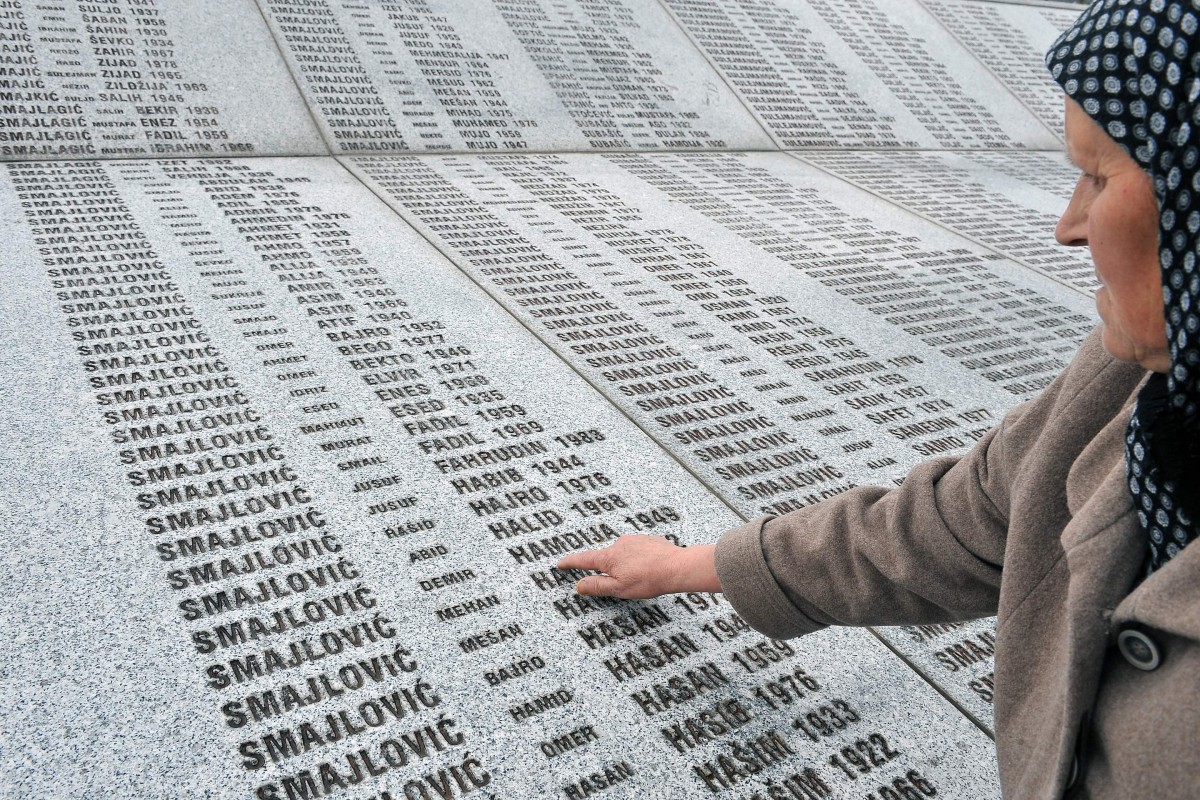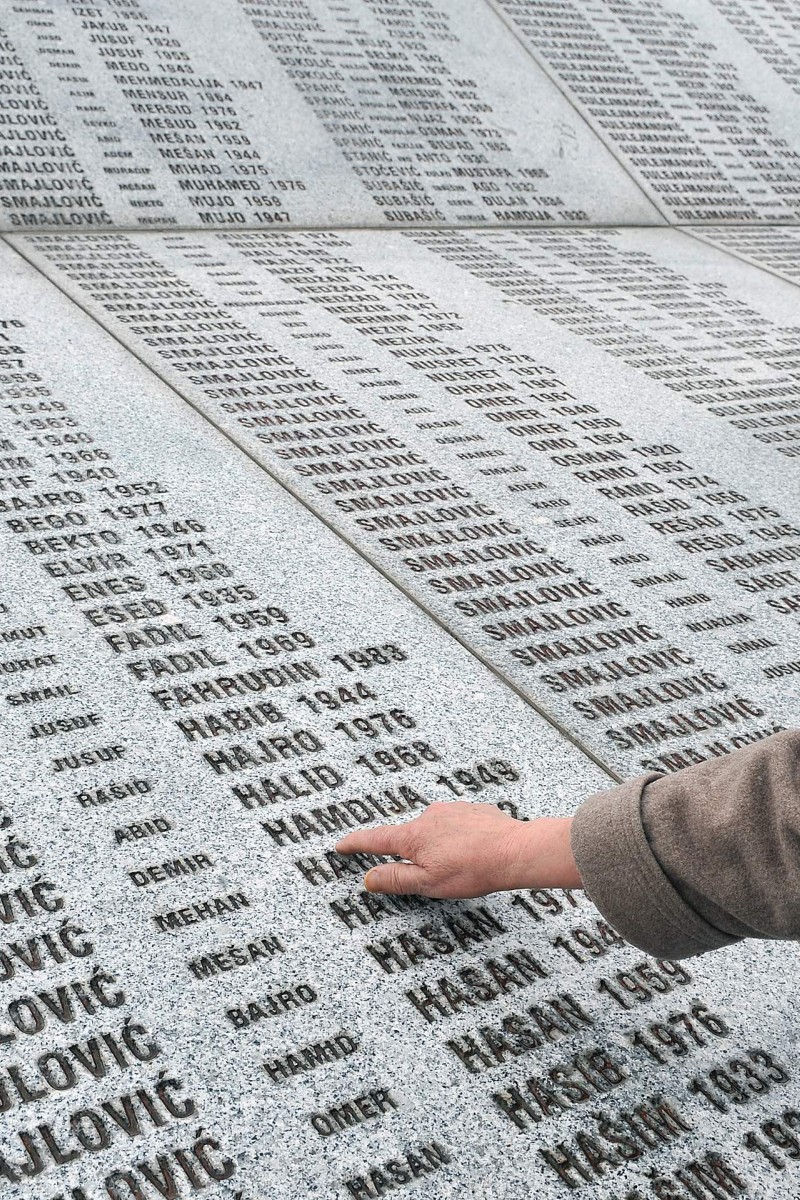 Bida Smajlovic, 64, survivor of July 1995 massacre in Srebrenica, stands at a memorial center in Potocari, on March 24, 2016, while pointing at the name of her husband, engraved among names of other victims of the massacre.
Bida Smajlovic, 64, survivor of July 1995 massacre in Srebrenica, stands at a memorial center in Potocari, on March 24, 2016, while pointing at the name of her husband, engraved among names of other victims of the massacre. A United Nations war crimes court convicted former Bosnian Serb leader Radovan Karadzic of genocide and nine other charges yesterday for being the mastermind behind a campaign of terror that left 100,000 people dead during the 1992-95 war in Bosnia, the worst war in Europe since the second world war.
The former leader, who was arrested in Serbia in 2008 after more than a decade in hiding, is the highest Bosnian Serb official to be sentenced by the Netherlands-based court.
“Victims and their families have waited for over two decades to see Karadzic’s day of reckoning,” Param-Preet Singh, senior international justice counsel at Human Rights Watch, said in a statement. “The Karadzic verdict sends a powerful signal that those who order atrocities cannot simply wait out justice.”
UN Secretary-General Ban Ki-moon’s deputy spokesman, Fanhan Haq, told reporters the judgment “sends a strong signal to all who are in positions of responsibility that they will be held accountable for their actions and shows once again that fugitives cannot outrun the international community’s collective resolve to make sure that they face justice according to the law.”
Karadzic had faced a total of 11 charges and a maximum life sentence. However, the court acquitted him of a second genocide charge, for a campaign to drive Bosnian Muslims and Croats out of villages claimed by Serb forces.
Prosecutors had sought a life sentence, but the court’s chief prosecutor, Serge Brammertz, said 40 years amounted to the same thing for the aging Karadzic.
“Overall, we are satisfied with the outcome,” Brammertz said, adding that prosecutors would carefully study the judgment before deciding whether to appeal the one genocide acquittal.
Karadzic had insisted he was innocent and claimed throughout the six-year court proceedings that his wartime actions were intended to protect the Serbs.
Peter Robinson, part of Karadzic’s legal team, said he would appeal.
“Dr. Karadzic is disappointed. He’s astonished,” Robinson told reporters. “He feels the trial chamber took inference instead of evidence in reaching the conclusions that it did.”
The verdict and sentence were met with expressions of relief and satisfaction from Bosnian Muslims and anger by Serb nationalists, thousands of whom took to the streets of the Serbian capital, Belgrade, to protest.
In Sarajevo, Amra Misic, 49, said: “I took a day off to watch the verdict as I was waiting for this for 20 years. I wish him a long life.”
In Bosnia, which has remained ethnically divided since the war, posters displaying Karadzic’s photo and saying “We are all Radovan” were plastered on walls in several towns in the Serb-controlled part of the country.
“This was only the first half of the process,” said Karadzic’s daughter Sonja, expressing the prevailing sentiment among the Serbs that the UN court and the West in general are highly biased against them.
Bosnia’s president, Bakir Izetbegovic, whose father led the Muslims during the war, said the verdict against Karadzic is a verdict to a “horrific ideology and policies.” He said it was a “judgment about the past that is important for the future.”
Izetbegovic said the ruling confirmed that crimes in Bosnia were systematically planned and executed.
“There is no punishment that can give any satisfaction to the victims, but the civilized world has still shown that they understand their suffering,” he said. “The world has sent a message that no one will be cleared of responsibility for crimes.”
Karadzic’s trial was one of the final acts at the Yugoslav war crimes tribunal. The court, set up in 1993, indicted 161 suspects. Of them, 80 were convicted and sentenced, 18 acquitted, 13 sent back to local courts and 36 had the indictments withdrawn or died.
Three suspects remain on trial, including his military chief, Mladic, and Serb ultranationalist Vojislav Seselj. Eight cases are being appealed and two defendants are to face retrials. The judgment in Seselj’s case is scheduled for next Thursday.
